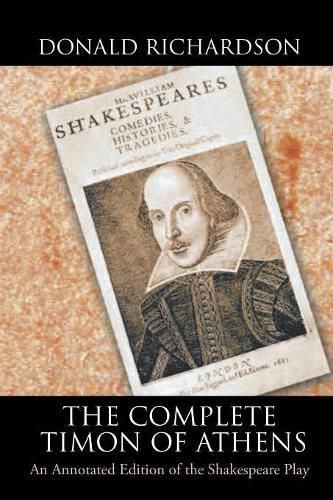Readings Newsletter
Become a Readings Member to make your shopping experience even easier.
Sign in or sign up for free!
You’re not far away from qualifying for FREE standard shipping within Australia
You’ve qualified for FREE standard shipping within Australia
The cart is loading…






This title is printed to order. This book may have been self-published. If so, we cannot guarantee the quality of the content. In the main most books will have gone through the editing process however some may not. We therefore suggest that you be aware of this before ordering this book. If in doubt check either the author or publisher’s details as we are unable to accept any returns unless they are faulty. Please contact us if you have any questions.
Timon of Athens might be regarded as the ancestor of Moliere's Les Misanthrope--in that Alceste seems to embody all the negativity of Timon. Timon also illustrates the error of equating friendship with finances.
"He finds that his idealization of friendship has been an illusion" (Mowat, xiv). "He is, thus, a man 'nobly but unwisely generous'" (Hinman, 17). "The play, itself, is one 'which its author never quite finished'" (Hinman, 27).
$9.00 standard shipping within Australia
FREE standard shipping within Australia for orders over $100.00
Express & International shipping calculated at checkout
This title is printed to order. This book may have been self-published. If so, we cannot guarantee the quality of the content. In the main most books will have gone through the editing process however some may not. We therefore suggest that you be aware of this before ordering this book. If in doubt check either the author or publisher’s details as we are unable to accept any returns unless they are faulty. Please contact us if you have any questions.
Timon of Athens might be regarded as the ancestor of Moliere's Les Misanthrope--in that Alceste seems to embody all the negativity of Timon. Timon also illustrates the error of equating friendship with finances.
"He finds that his idealization of friendship has been an illusion" (Mowat, xiv). "He is, thus, a man 'nobly but unwisely generous'" (Hinman, 17). "The play, itself, is one 'which its author never quite finished'" (Hinman, 27).